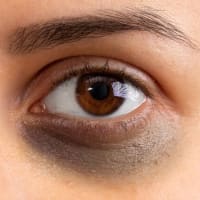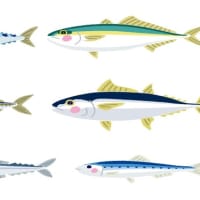Me Oh, excuse me, I’m going to the little boys’ room.
私 あっ、ごめんなさい、ちょっとトイレ。
Dali Oh, oh, oh, wait, wait. What’s the “little boys' room”? You, weirdo boy? Good gravy, I hate euphemisms.
ダリちゃん おいおいおい、ちょっと待ってよ。little boys’ roomって何なの? 変な奴だね。嘆かわしいね。わしは婉曲表現は嫌い。
Me What are euphemisms?
私 何、婉曲表現って?
Dali I hate English as well as Japanese euphemisms. Both languages have euphemisms. I will explain. A euphemism is an innocuous word or expression used in place of one that more correctly refers to unpleasant things, like things related to sexuality, human waste-related ideas, and so on.
ダリちゃん わしは英語の婉曲表現も日本語の婉曲表現も嫌い。どちらの言語にも婉曲表現がある。説明してあげよう。婉曲表現とは、例えば性的関心や人間の排泄物に関したものなどをより正しく表現すると不快なのでその代わりに使われる差しさわりのない言葉や表現を言うんだ。
Me So, it’s better if I say like, “Can I go to the toilet?”
私 それじゃあ「キャナイ、ゴー、ツー、ザ、トイレット?」(トイレに行ってもいい?)とでも言えばいいの?
Dali No. That’s British English. So, if I have to go to the room, I will tell you, “Excuse me, I have to urinate.” It’s very clear. I do not use a euphemism. Another example. If I am in an izakaya and I don’t know where the urinatorium (Ed. restroom) is, I will ask a waitress in Japanese, “Obenjo-wa…?” In the same situation, Japanese would ask sometimes like, “Otearai-wa…?” or “Toire-wa…?” I HATE that! But if I am with English-speaking friends, I always say, “Where is urinatorium?” Or in some more rare instances, I might say, “I have to go to defecatorium.” (But I almost only defecate at home.)
ダリちゃん ちゃう。それはイギリス英語だ。それでもしわしがトイレに行かなければならない時、わしはあなたに「ごめん、おしっこしてくるわ」と言う。とても明らかでしょう。わしは婉曲表現は使わない。もう一つの例。わしが居酒屋にいてトイレがどこかわからない時、わしは店員の女の子に日本語で「お便所は?」と聞くね。同じ状況では日本人はよく「お手洗いは?」とか「トイレは?」と聞くだろうね。嫌だね! でももしわしが英語を話す友達と一緒だったらわしはいつも「urinatoriumはどこ?」って言うね。あるいは、めったにないんだけど「defecatoriumに行かなきゃ」って言うかも。(でも、わしは大きな方は、ほとんど、おうち以外ではしないね。)
Me You really don’t like euphemisms, do you?
私 ダリちゃんはほんと婉曲表現が嫌いなんだね。
Dali No! I HATE them! Another euphemism is related to sex. Imagine this expression, “to have sex.” This is actually an older euphemism. Of course, sex means only gender difference. So like, what is my sex?― Male. That noisy obahan is female. This is the meaning of sex.
ダリちゃん そう! だ~い嫌い。もう一つの婉曲表現はセックスに関連したものだ。to have sexという表現を考えてみよう。これは実際は、より古い婉曲表現だ。もちろんsexとは性差と言う意味でしかない。だから例えば、わしのsexは何かというと、男だ。あの騒がしい「おばはん」は女だ。これがsexの意味だ。
Me Yes, I know sex means gender difference.
私 そうだね、sexは性差の意味って僕は知ってるよ。
Dali But the word, “sex” has come to mean the abbreviation of “sexual intercourse.” Before the advent of the euphemism, we might have said that he has venereal disease because he had sexual intercourse with that dirty girl. But later, “sexual intercourse” was euphemized as the abbreviation “sex.” I mean that the abbreviation of “sexual intercourse,” which is “sex” is, in fact, a euphemism. Now it seems that the fact that “sex” is a euphemism is almost forgotten. It is not perceived as euphemism anymore.
ダリちゃん でもねsexという単語はsexual intercourseの略語を意味するようになったんだ。この婉曲表現が登場するまでは、わしらは「彼はあの不衛生な女の子とsexual intercourseをしたので性病になっている」なんて言ったかもしれない。でも後になってsexual intercourseはsexという略語として婉曲化されたんだ。つまりsexual intercourseの略語、つまりsexは、実は婉曲表現ということなんだ。でも、sexが婉曲表現であるという事実は今ではほとんど忘れ去られているようだ。もはや婉曲表現として理解されていない。
Me I didn’t know that “sex” is a euphemism of the more direct and explicit expression, “sexual intercourse.” That’s a surprise.
私 僕はsexがより直接的ではっきりした表現であるsexual intercourseの婉曲表現であるとは知らなかった。驚きだね。
Dali There is a joke. The reporter asks, “Excuse me, may I interview you?” A woman replies, “Yes.” Reporter: “Name?” Woman: “Nancy Forbes.” Reporter: “Sex?” Woman: “Yes, of course.” Reporter: “No, no. I mean male or female?” Woman: “Yes. Yes, please.” So the joke about this is from the idea that, nowadays, it seems that the true meaning of “sex” (gender difference) is forgotten, and euphemistic usage remains.
ダリちゃん 笑い話があるんだ。リポーターは「すみません。インタビューよろしいですか?」と言う。婦人は「いいですよ」と答える。リポーター:「お名前は?」婦人:「ナンシーフォーブスです」リポーター:「性別は?」婦人:「ええ。もちろん」リポーター:「いえいえ。男性? 女性?」婦人:「はい、お願いします」つまりこのジョークは、今では本当のsexの意味(性差)は忘れ去られてしまって婉曲的な用法が残ってしまったようだという考えから来ている。
Me That’s interesting.
私 面白いね
Dali But there is an expression I hate about more than that. If your friend asks you, “What happened with your girlfriend last night? Did you have sex?” You may say, “No, we didn’t.” But recently, as I told you, “sex” has come to no longer feel like a euphemism. So a new euphemism has emerged. That is, “sleep together.” I hate that!
ダリちゃん でもね、それ以上にわしが嫌いな表現があるんだ。もしあなたの友達があなたに「昨晩ガールフレンドと何かあった? セックスした?」と聞いたとする。あなたは「いや。なかった」と言うかも。でも最近は、わしが言ったように、sexという言葉は婉曲表現とは思われなくなった。で、新しい婉曲表現が登場した。それはsleep togetherという表現だ。気に食わないね。
Key words(キーワード)
euphemism: 婉曲表現、婉曲話法、婉曲語句
little boys’ room: 男子トイレ
weirdo: 奇人、異常者、変わり者
good gravy: これは大変
innocuous: 無害の、悪気のない
sexuality: 性的関心、性欲、性行為
urinate: 排尿をする
instance: 例、実例、事例、場合
abbreviation: 省略、短縮、略語
advent: 出現、到来
venereal disease: 性病
sexual intercourse: 性交
perceive: 知覚する、認める、気づく、理解する
explicit: 明確な、はっきりした
euphemistic: 婉曲語法の、婉曲な
emerge: 出てくる、現れる、出現する、浮かび上がる
coin: (新語などを)造り出す
contraction: 短縮、収縮、短縮形
auditorium: 聴衆席、観客席、傍聴席、講堂、大講義室
defecate: 排便する
prefix: 接頭辞
depict: 描く、描写する、叙述する
politeness: 礼儀正しさ、丁寧
astute: 明敏な、機敏な、抜け目のない、ずるい
Comments(コメント)
In the conversation, Dali, instead of using the popular euphemisms of bathroom, restroom, or lavatory, used the words, urinatorium and defecatorium. Both words are coined by Dali. I think they were probably derived from the contraction of “urinate” and “auditorium,” and that of “defecate” and “auditorium,” respectively. Also, he doesn’t use Japanese euphemisms, and uses obenjo, instead of toire (or otearai). But the astute application of the prefix (“o”) to depict politeness to the straight direct word, benjo, makes his impression less unfavorable, I think.
会話では、ダリちゃんは、よく知られた婉曲表現であるbathroomやrestroomやlavatoryを使う代わりにurinatoriumやdefecatoriumという言葉を使っていた。どちらの言葉もダリちゃんが造ったものだ。僕はおそらくこれらはそれぞれ、urinate + auditoriumやdefecate + auditoriumから由来したものと思う。また、ダリちゃんは日本の婉曲表現を使わずに、「トイレ」や「お手洗い」の代わりに「便所」という言葉を使っている。でもね、ストレートで直接的な「便所」と言う言葉に、丁寧さを表すための接頭辞「お」をうまく使うことにより、ダリちゃんの悪印象が多少なりとも緩和されているように僕には思える。






















